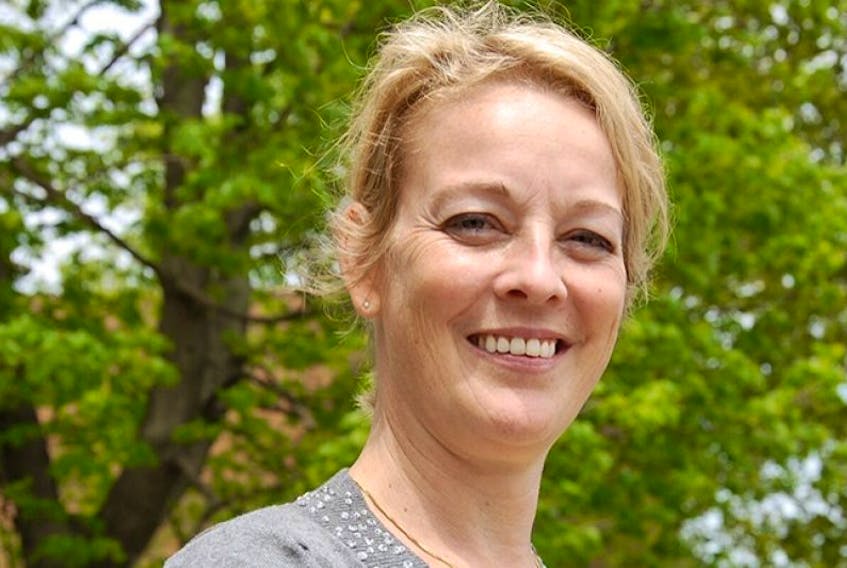Veronique Boscart says Canada is sorely ill equipped to deal with the ill health within the country’s aging population.
“The current work force is really not well prepared to take care of older people,’’ says Boscart, the newly elected president of the Canadian Gerontological Nursing Association (CGNA).
“People don’t like me to say that, but I say it anyway.’’
Boscart was the keynote speaker Friday at the CGNA’s biennial conference in Charlottetown.
Speaking to The Guardian, the well-known gerontology expert called for a major system change. Status quo, she says, is simply not acceptable.
Far more emphasis — and a great deal more resources — needs to be focused on gerontology.
“We have done a study across Canada to see how much gerontology is in nursing education,’’ says Boscart. “Some nurses graduate without any content in gerontology. Hard to believe.’’
Nor does enough mentoring or training exist for nurses that care for elderly patients, she adds.
And the number of older patients is growing rapidly in Canada.
By 2036, the country is forecasted to have one million residents with dementia, up from 450,000 today.
“Giving care to someone with dementia is not an easy undertaking,’’ says Boscart. “You need a very well developed work force to do that.’’
Boscart says a national dementia strategy is needed, noting Canada is the only Western country that does not have one. She says many people come to acute care or long-term care when it is not necessary or in their best interest.
“Most people with dementia,’’ she adds, “lives at home and do well because it’s their own house. The people that are around them know them well, they know their routines and things go well.’’
Boscart notes that delirium, which is most often caused by physical or mental illness but is usually temporary and reversible, is often misdiagnosed in older people as dementia. Thus the patient is not given the proper attention to help foster recovery. Rather, their health is allowed to deteriorate.
Mary Jane Callaghan, manager of the Home Care Program with Health P.E.I., says more resources, funding, education and training is needed to properly care for the aging population in the province.
“I think we have work to do on a number of accounts,’’ she says.
Still, she adds, plenty of encouraging work is in place or being developed to care for Prince Edward Island’s older residents when their health declines.
The Home Care Program is piloting approaches to caring for seniors that have been successful in other provinces, such as providing increased hours of home care and the support of a care coordinator to frail seniors who are discharged from hospital or who are at the highest risk of needing hospital or long term care.
Shelley Woods, chief nursing officer in long-term care with Health P.E.I., says seniors for the most part want to be in their own home.
Adding to the more than 1,100 long-term beds across P.E.I. is not the answer, she says.
“We can’t afford it and it’s not what they (seniors) want,’’ says Woods.
She adds the mentoring currently done in P.E.I. by nurses very knowledgeable in gerontology needs to be formalized to be more effective.
Veronique Boscart says Canada is sorely ill equipped to deal with the ill health within the country’s aging population.
“The current work force is really not well prepared to take care of older people,’’ says Boscart, the newly elected president of the Canadian Gerontological Nursing Association (CGNA).
“People don’t like me to say that, but I say it anyway.’’
Boscart was the keynote speaker Friday at the CGNA’s biennial conference in Charlottetown.
Speaking to The Guardian, the well-known gerontology expert called for a major system change. Status quo, she says, is simply not acceptable.
Far more emphasis — and a great deal more resources — needs to be focused on gerontology.
“We have done a study across Canada to see how much gerontology is in nursing education,’’ says Boscart. “Some nurses graduate without any content in gerontology. Hard to believe.’’
Nor does enough mentoring or training exist for nurses that care for elderly patients, she adds.
And the number of older patients is growing rapidly in Canada.
By 2036, the country is forecasted to have one million residents with dementia, up from 450,000 today.
“Giving care to someone with dementia is not an easy undertaking,’’ says Boscart. “You need a very well developed work force to do that.’’
Boscart says a national dementia strategy is needed, noting Canada is the only Western country that does not have one. She says many people come to acute care or long-term care when it is not necessary or in their best interest.
“Most people with dementia,’’ she adds, “lives at home and do well because it’s their own house. The people that are around them know them well, they know their routines and things go well.’’
Boscart notes that delirium, which is most often caused by physical or mental illness but is usually temporary and reversible, is often misdiagnosed in older people as dementia. Thus the patient is not given the proper attention to help foster recovery. Rather, their health is allowed to deteriorate.
Mary Jane Callaghan, manager of the Home Care Program with Health P.E.I., says more resources, funding, education and training is needed to properly care for the aging population in the province.
“I think we have work to do on a number of accounts,’’ she says.
Still, she adds, plenty of encouraging work is in place or being developed to care for Prince Edward Island’s older residents when their health declines.
The Home Care Program is piloting approaches to caring for seniors that have been successful in other provinces, such as providing increased hours of home care and the support of a care coordinator to frail seniors who are discharged from hospital or who are at the highest risk of needing hospital or long term care.
Shelley Woods, chief nursing officer in long-term care with Health P.E.I., says seniors for the most part want to be in their own home.
Adding to the more than 1,100 long-term beds across P.E.I. is not the answer, she says.
“We can’t afford it and it’s not what they (seniors) want,’’ says Woods.
She adds the mentoring currently done in P.E.I. by nurses very knowledgeable in gerontology needs to be formalized to be more effective.









